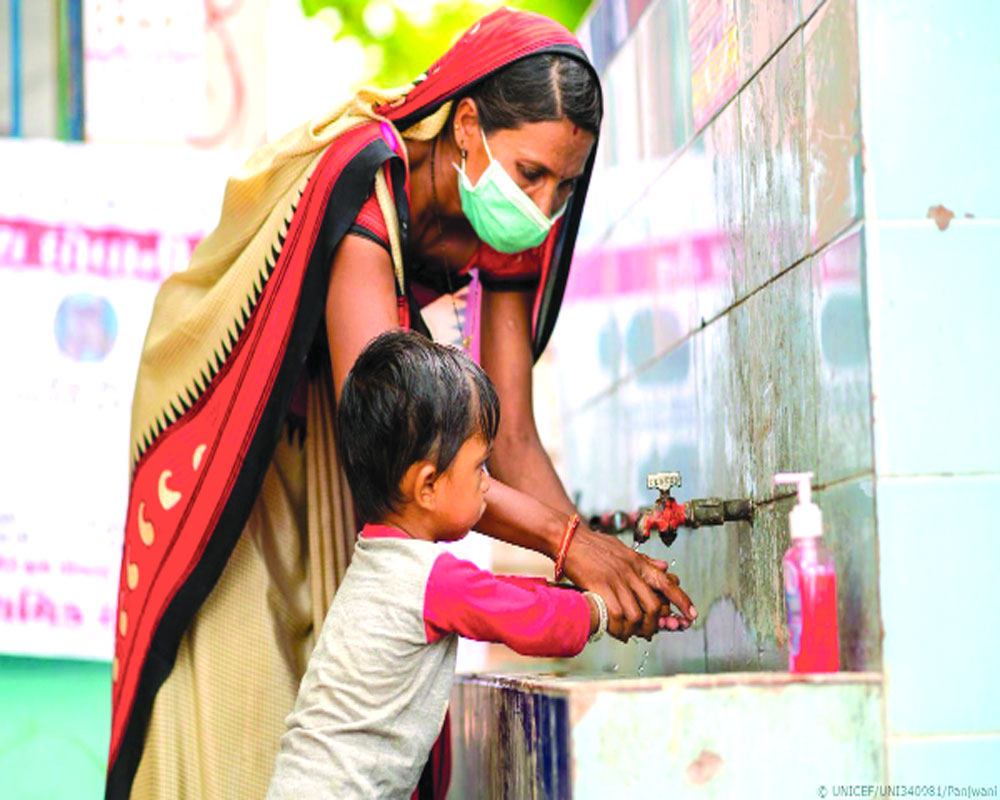Amid Covid-19 pandemic, hand washing has become a new norm to keep the deadly virus at bay, but ironically globally three in 10 people, or 2.3 billion, do not have basic facilities like water and soap available at home, the UNICEF has said, suggesting that the have-nots remain at the risk of getting infected with coronavirus.
The situation is worse in the least developed countries, with over six in 10 people without access to basic hand hygiene, the UN agency said in a fact sheet on Global Hand washing Day observed on October 15. The cost to provide hand hygiene in all homes in 46 of the world’s least developed countries by 2030 is an estimated at $11 billion.
Nonetheless, what has come as a relief is that some progress has been made since 2015: The global population with access to basic hand hygiene at home has increased from 5 billion to 5.5 billion, or from 67 per cent to 71 per cent.
However, if current trends persist, 1.9 billion people will still not have access to basic hand hygiene by the end of the decade.
According to the latest estimates, two in five schools worldwide do not have basic hygiene services with water and soap, affecting 818 million students, of which 462 million attend schools with no facility at all. In the least developed countries, seven out of 10 schools have no place for children to wash their hands.
One-third of health care facilities worldwide do not have hand hygiene facilities at points of care where the patient, health care worker, and treatment involve contact with the patient.
“Global response efforts to the pandemic have created an unprecedented time for hand hygiene. Yet progress remains far too slow for the most vulnerable, underserved communities,” Unicef WASH Director Kelly Ann Naylor was quoted as saying in a statement.
“Hand hygiene cannot be viewed as a temporary provision to manage Covid-19. Further long-term investment in water, sanitation and hygiene can help prevent the next health crisis from coming. It also means fewer people falling ill with respiratory infections, fewer children dying from diarrhoea diseases, and more pregnant mothers and newborns protected from preventable conditions like sepsis.


























